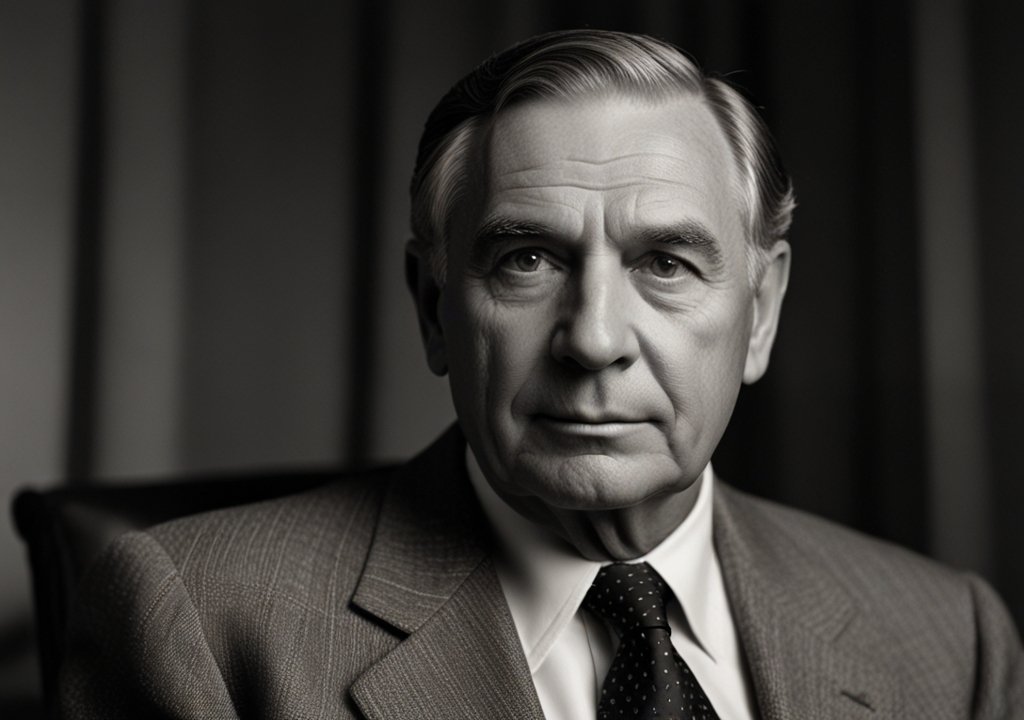Imagine a bar of soap that becomes a household name. Now, picture the leader behind its rise—a man whose strategies shaped brands like Dial, Purex, and Armour Star. Meet John Teets, the CEO of The Dial Corporation, whose legacy is a blend of innovation, controversy, and enduring influence.
John Teets (1936–2014) wasn’t just a CEO; he was a corporate architect. Under his leadership, Dial transformed from a soap manufacturer into a consumer goods powerhouse. But his story isn’t without its complexities. Let’s unravel how Teets navigated boardrooms, sparked debates, and built an empire.
Who Was John Teets? From Humble Beginnings to Corporate Titan
Early Life and Career Foundations
Born during the Great Depression, Teets’ Midwestern roots instilled a relentless work ethic. After earning a degree in business administration, he joined Greyhound Corporation in 1960—a move that set the stage for his eventual role at Dial (then a Greyhound subsidiary).
The Rise to CEO of The Dial Corporation
By 1985, Teets had climbed Greyhound’s ranks, becoming Dial’s CEO. His mandate? Revitalize a stagnating brand portfolio.
Strategic Genius: How Teets Transformed Dial
Acquisitions and Brand Expansion
Teets spearheaded strategic acquisitions, diversifying Dial into personal care, food, and household products. Key moves included:
| Brand/Company Acquired | Year | Impact |
|---|---|---|
| Purex (bleach and cleaners) | 1985 | Expanded into cleaning products |
| Armour Star (canned meats) | 1988 | Diversified into food services |
| Breck Shampoo | 1990 | Strengthened personal care line |
Marketing Innovations
Teets championed memorable campaigns, like Dial soap’s “Aren’t you glad you use Dial? Don’t you wish everybody did?”—a slogan that became cultural shorthand for hygiene.
Controversies: The Shadow Side of Growth

Labor Strikes and Cost-Cutting Criticisms
Teets’ aggressive cost-cutting led to labor disputes, including a 1990 strike at Dial’s Aurora plant. Critics argued his policies prioritized profits over workers.
Environmental and Ethical Debates
Dial faced fines in the 1990s for wastewater violations. While Teets wasn’t directly implicated, the scandals raised questions about corporate accountability under his watch.
Legacy: Lasting Impact on the Consumer Goods Industry
Pioneering Corporate Spin-Offs
In 1991, Teets engineered Dial’s spin-off from Greyhound, creating a standalone publicly traded company—a model later emulated by firms like Kraft and PepsiCo.
Mentorship and Philanthropy
Post-retirement, Teets advised startups and donated to education initiatives, emphasizing leadership development.
John Teets’ Net Worth: A Reflection of His Career
While exact figures are undisclosed, estimates suggest Teets’ net worth peaked around $50 million in the 1990s. His wealth stemmed from:
| Source | Percentage |
|---|---|
| Salary and Stock Options | 65% |
| Board Memberships | 20% |
| Real Estate Investments | 15% |
FAQs
- How long was John Teets CEO of The Dial Corporation?
Teets served as CEO from 1985 until his retirement in 1995. - What were his major achievements?
He diversified Dial’s portfolio, led its spin-off from Greyhound, and boosted annual revenue to $2.5 billion by 1994. - Did he face legal issues?
Dial faced environmental fines, but Teets himself wasn’t charged. - How did he impact Dial’s brand reputation?
Mixed: Dial gained market share, but controversies affected public perception. - What was his leadership style?
Decisive and growth-focused, often described as “demanding but visionary.” - What happened after he retired?
He remained active in corporate advisory roles until his death in 2014. - How did John Teets die?
He passed away at 78 from natural causes, leaving behind a complex legacy.
Key Takeaways: Lessons from Teets’ Leadership
- Balance Growth and Ethics: Growth shouldn’t come at the cost of worker welfare.
- Diversify Wisely: Strategic acquisitions can transform a company’s trajectory.
- Legacy is Multifaceted: Even visionary leaders face criticism—plan for the long-term.
Final Thought: John Teets’ story is a reminder that corporate success is rarely black-and-white. His tenure as CEO of The Dial Corporation offers lessons in ambition, resilience, and the price of progress. Whether you’re a budding entrepreneur or a seasoned exec, his legacy prompts a question: How will your leadership shape—and be shaped by—the times?
“The Dial soap wasn’t just cleansing hands; it was cleaning up the competition.” — Industry analyst on Teets’ impact.
YOU MAY ALSO LIKE
Justin Baldoni: Actor, Director, and Advocate Redefining Masculinity











